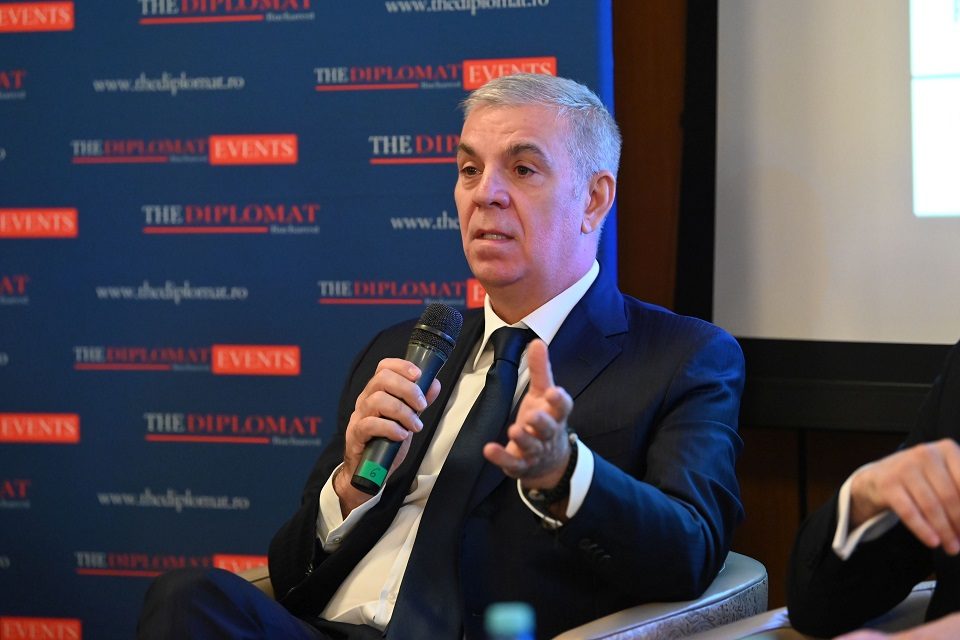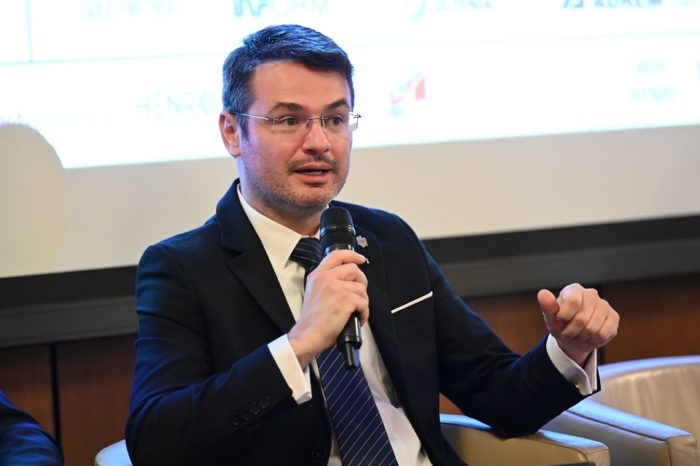Valeriu Zgonea, ANCOM: “By 2026, 5G will be the majority technology in Romania”

“We are talking about smart communities. Unfortunately, there are several approaches in Romania. As always, when we make a transition to a certain type of society, we choose this concept of decentralization instead of thinking about a common strategy, an action plan, some generally valid principles and following this process. Unfortunately, the weaknesses of decentralization outweigh the benefits of decentralization,” Valeriu Zgonea, president of the National Authority for Communications Administration and Regulation (ANCOM) said during Smart Transformation Forum organized by The Diplomat-Bucharest.
“At this moment, if we are discussing intelligent solutions so that all these problems that we find in a community with the help of technology and connectivity are closer to the citizen, to be simpler for him, to be able to use them, I believe that technology 4G offers enough tools to support communities, if they have the financial resources and the ability. Smart specialization is not very simple for communities.
If we discuss technical details, then we can say this: at the end of last year, we had about 3% 5G in Romania, around 720 – 730,000 SIM cards. If we look at the data reported by the operators, somewhere at the end of August there were about 1,750 5G stations, about 5,000 cells in urban communities. If we are not careful and do not have a plan to discuss with the mobile operators, we may find that this technology will be the majority in Romania after 2027. The dialogue we have today with the operators gives us hope that, somewhere at the end of 2026, it will be a majority technology in Romania. The transition is not simple.
The communities must be specialized, they must be helped to understand that not only the absorption of European funds will help them to implement some viable solutions, but also the private community must support. Not all the financial resources that the communities have are sufficient to access either European funds or other programs. We keep talking about big infrastructure without looking at this infrastructure, which is critical infrastructure. In my opinion, the most important shock that Romania has experienced in the last 100 – 150 years, if we do not have a common effort. Joint effort means the expertise that everyone has from public institutions or state authorities or agencies, but also from the private sector. All this mix is a solution to ease this transition, to educate and train communities to become intelligent.
We had a decentralization that we asked for, instead of having a centralized plan, a centralized strategy, an action plan, some generally valid principles, so that when we apply certain solutions or good practices, they are distributed and to the communities that do not have financial resources, if they want to have this transition to a digital society.
The role of the local administration is important, but the local administration, without a support from the private sector and without a support from the state, will find it very difficult to find the financial resources to build a project. They don’t have technical support, they don’t have enough resources to apply for such a solution.
The technology will also reach Romania and will be implemented. The first time in the urban centers, where we are talking about economy of scale, where there are many solutions that we have to support, and after that also in the rural communities. ANCOM has come up with two elements in recent years to support this concept. Firstly, it made a model regulation for electronic communication providers who want to access the properties of UATs, how to do it and secondly, it launched a Guide that is constantly changing on all smart solutions of radio and the radio equipment we use for smart communities, so that they are very careful what they select, how they select when they want to implement such solutions within their communities.”
Full recording of the conference HERE













